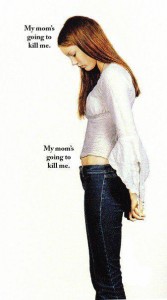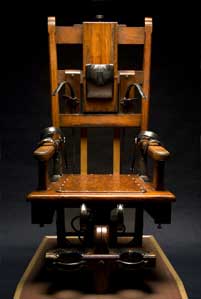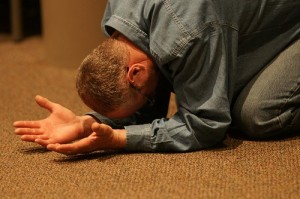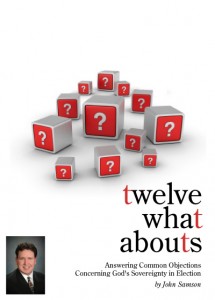The case for Biblical Trinitarianism.
Dr. James White teaches on the doctrine of the Trinity at a time when much of the Church seems unaware of its vital importance.
HT: LaneCh

 Charles Pope, D.C., is compiling a list of quotations from the early church on abortion, which is not a modern invention but was extremely common during the Roman Empire.
Charles Pope, D.C., is compiling a list of quotations from the early church on abortion, which is not a modern invention but was extremely common during the Roman Empire.
He writes:
A couple of years ago a former Speaker of the House, whose name need not be mentioned here at all, showed herself an amateur theologian lacking in even basic knowledge by claiming (on what she called Jesuitical authority) that the Church teaching on abortion was no older than the 1950s. The usually cautious American Bishops lost no time in issuing vigorous correction. And rightly so, of course, as quotes like these will show.
The Didache (“The Teaching of the Twelve Apostles”) ca 110 AD. Thou shalt not murder a child by abortion. (2:2)…The Way of Death is filled with people who are…murderers of children and abortionists of God’s creatures. (5:1-2)
Letter of Barnabas, circa 125: You shall not kill either the fetus by abortion or the new born
Athenagoras the Athenian (To Marcus Aurelius), ca 150 AD: “We say that those women who use drugs to bring on abortion commit murder, and will have to give an account to God for the abortion…, [For we] regard the very fœtus in the womb as a created being, and therefore an object of God’s care… (# 35).
Clement of Alexandria: (circa 150 – 215 AD) Our whole life can go on in observation of the laws of nature, if we gain dominion over our desires from the beginning and if we do not kill, by various means of a perverse art, the human offspring, born according to the designs of divine providence; for these women who, if order to hide their immorality, use abortive drugs which expel the child completely dead, abort at the same time their own human feelings. Paedagogus, 2
Tertullian circa 160-240 AD: For us, we may not destroy even the fetus in the womb, while as yet the human being derives blood from other parts of the body for its sustenance. To hinder a birth is merely a speedier man-killing; nor does it matter when you take away a life that is born, or destroy one that is coming to birth. That is a man which is going to be one: you have the fruit already in the seed. Apology 9:6
Tertullian (circa 160 – 240 AD): …we are not permitted, since murder has been prohibited to us once and for all, even to destroy …the fetus in the womb. It makes no difference whether one destroys a life that has already been born or one that is in the process of birth. Apology (9:7-8)
Tertullian circa 160-240 AD: [John the Baptist and Jesus] were both alive while still in the womb. Elizabeth rejoiced as the infant leaped in her womb; Mary glorifies the Lord because Christ within inspired her. Each mother recognizes her child and is known by her child who is alive, being not merely souls but also spirits. De Aninta 26:4
Hippolytus (circa 170-236 AD): Whence certain women, reputed believers, began to resort to drugs for producing sterility and to gird themselves round, so as to expel what was conceived on account of their not wanting to have a child either by a slave or by any paltry fellow, for the sake of their family and excessive wealth. Behold, into how great impiety that lawless one has proceeded, by inculcating adultery and murder at the same time. From “Refutation of all Heresies” 9:7
Continue reading
In an article entitled “FactChecker: The Cross an Electric Chair?” found Glen T. Stanton writes:
Have you ever heard a Christian writer, teacher, or pastor say something like the following?
“When Jesus told those who would follow him that they must ‘take up his cross daily’ this was like telling people today to take up their electric chairs and follow him.”
or
“For Christians to wear crosses around their necks is like us wearing a symbol of an electric chair.”
 The analogy between the cross and an electric chair is intended to show that, while the cross has become a common and even sentimental symbol of Christianity today, in Christ’s day it was a harsh symbol of execution. Like an electric chair is today.
The analogy between the cross and an electric chair is intended to show that, while the cross has become a common and even sentimental symbol of Christianity today, in Christ’s day it was a harsh symbol of execution. Like an electric chair is today.
It is an important truth that Christians of every age remember about the cross. But the electric chair analogy actually deludes the point.
This comparison between the cross and old sparky was first made by an important theologian of the 1960s: Lenny Bruce. In a series of articles he serialized in Playboy, later published in his 1967 posthumous book, How to Talk Dirty and Influence People, Bruce observed,
If Jesus had been killed twenty years ago, Catholic school children would be wearing little electric chairs around their necks instead of crosses.
Cue the laughter. But the truth is, an electric chair and a cross are similar in only one way: each is designed to kill criminals. Otherwise, they are nothing alike.
The electric chair was created by the Edison Company in the late 1800s as a means to execute a prisoner faster and more humanely. Typically, the process—leading up to, during, and following our executions today—is carefully scripted and implemented to ensure the criminal dies with some dignity and as little suffering as possible.
Continue reading
 In the 1990s Pastor Jim Cymbala’s oldest daughter Chrissy was far from God, and had been for two and half years. In Fresh Fire, Jim tells the story of what happened.
In the 1990s Pastor Jim Cymbala’s oldest daughter Chrissy was far from God, and had been for two and half years. In Fresh Fire, Jim tells the story of what happened.
February came. One cold Tuesday night during the prayer meeting, I talked from Acts 4 about the church boldly calling on God in the face of persecution. We entered into a time of prayer, everyone reaching out to the Lord in concert together.
An usher handed me a note. A young women whom I felt to be spiritually sensitive had written: Pastor Cymbala, I feel impressed that we should stop the meeting and all pray for your daughter.
I hesitated. Was it right to change to flow of the service and focus on my personal need?
Yet something in the note seemed to ring true. In a few minutes I picked up the microphone and told the congregation what had just happened. “The truth of the matter,” I said, “although I haven’t talked much about it, is that my daughter is very far from God these days. She thinks up is down, and down is up; dark is light, and light is dark. But I know God can break through to her, and so I’m going to ask Pastor Boekstaaf to lead us in praying for Chrissy. Let’s all join hands across the sanctuary.”
As my associate began to lead the people, I stood behind him with my hand on his back. My tear ducts had run dry, but I prayed as best I knew.
To describe what happened in the next minutes, I can only employ a metaphor: The church turned into a labor room. The sounds of women giving birth are not pleasant, but the results are wonderful. Paul knew this when he wrote, “My dear children, for whom I am again in the pains of childbirth until Christ is formed in you . . .” (Gal. 4:19).
There arose a groaning, a sense of desperate determination, as if to say, “Satan, you will not have this girl. Take your hands off her, she’s coming back!” I was overwhelmed. The force of that vast throng calling on God almost literally knocked me over.
When I got home that night, Carol was waiting up for me. We sat at the kitchen table drinking coffee, and I said, “It’s over.”
“What’s over?” she wondered.
“It’s over with Chrissy. You would have had to be in the prayer meeting tonight. I tell you, if there’s a God in heaven, this whole nightmare is finally over.” I described what had taken place.
Thirty-two hours later, on Thursday morning, as I was shaving, Carol suddenly burst through the door, her eyes wide. “Go downstairs!” she blurted. “Chrissy’s here.”
“Chrissy’s here?”
“Yes, Go down!”
“But Carol–I–”
“Just go down,” she urged, “It’s you she wants to see.”
I wiped off the shaving cream and headed down the stairs, my heart pounding. As I came around the corner, I saw my daughter on the kitchen floor, rocking on her hands and knees, sobbing. Cautiously I spoke to her name:
“Chrissy?”
She grabbed my pant leg and began pouring out her anguish. “Daddy, Daddy. I’ve sinned against God. I’ve sinned against myself. I’ve sinned against you and Mommy. Please forgive me.”
My vision was clouded by tears I pulled her up from the floor and held her close as we cried together. Suddenly she drew back. “Daddy,” she said with a start, “Who was praying for me? Who was praying for me?” Her voice was like that of a cross-examining attorney.
“What do you mean, Chrissy?”
“On Tuesday night, daddy–who was praying for me?” I didn’t say anything, so she continued:
“In the middle of the night, God woke me up and showed me I was heading toward this abyss. There was no bottom to it–it scared me to death. I was so frightened. I realized how hard I’ve been, how wrong, how rebellious. But at the same time, it was like God wrapped his arms around me and held me tight. He kept me from sliding any farther as he said, I still love you. Daddy, tell me the truth–who was praying for me Tuesday night?”
 Back in June I was interviewed by Pastor Kevin Boling about my new book “Twelve What Abouts” on the “Knowing the Truth” Radio broadcast. The 50,000 watt radio station originates in Greenville, covering all of South Carolina and parts of North Carolina, Tennessee and Georgia.
Back in June I was interviewed by Pastor Kevin Boling about my new book “Twelve What Abouts” on the “Knowing the Truth” Radio broadcast. The 50,000 watt radio station originates in Greenville, covering all of South Carolina and parts of North Carolina, Tennessee and Georgia.
There seems to have been a great deal of interest in the broadcast, with more than 700 mp3 downloads, and so I was invited back to do a second interview about the book today. We were able to talk about a number of the “what abouts.”
Here are the links to the two programs:
 Though this debate took place almost 19 years ago now, the fact is that the word of God has not changed in any way at all in that time. On September 28, 1993, at the Bayview Orthodox Presbyterian Church in Chula Vista, California, Dr. James White debated Roman Catholic Patrick Madrid on the subject “Does The Bible Teach Sola Scriptura?” The full transcript of the debate can be found at this link.
Though this debate took place almost 19 years ago now, the fact is that the word of God has not changed in any way at all in that time. On September 28, 1993, at the Bayview Orthodox Presbyterian Church in Chula Vista, California, Dr. James White debated Roman Catholic Patrick Madrid on the subject “Does The Bible Teach Sola Scriptura?” The full transcript of the debate can be found at this link.
Here’s part of Dr. White’s opening statement regarding the sufficency of Scripture:
2 Timothy 3:16-17, “All Scripture is God-breathed, and is profitable for doctrine, for reproof, for instruction, for training in righteousness, in order that the man of God might be complete, fully equipped for every good work.”
We begin by noting that Scripture is theopneustos, “God-breathed.” The term is very strong. I refer anyone who wishes a full discussion of this term to B.B. Warfield’s excellent treatment of it. That which is theopneustos has ultimate authority, for there can be no higher authority than God’s very speaking. “All Scripture is God-breathed.”
It is common for Roman Catholic apologists to follow an error made by John Henry Cardinal Newman, with reference to this passage. Indeed, Karl Keating, Patrick’s associate at Catholic Answers, makes the same mistake in his book, Catholicism and Fundamentalism. And he repeated it again only recently during a debate on this subject in Denver during the papal visit. Newman said that if this verse proves the sufficiency of Scripture, it proves too much, for Paul is talking here only of the Old Testament, which would leave the New Testament as an unnecessary addition. But such is not Paul’s point at all.
Paul’s point is, if it is Scripture at all, it is God-breathed. Paul is not speaking about the extent of the canon but the nature of Scripture itself as originating in God. All Scripture then, including the New Testament, is God-breathed.
Because Scripture is God-breathed, and hence represents God’s very voice speaking, it is profitable for the work of the ministry in the Church of Jesus Christ. We are told that the work of teaching, and rebuking, and correcting, and training in righteousness, can be undertaken due to the nature of Scripture as God-breathed. That is Paul’s point.
The Church is not left without the voice of God. For when the Church listens to Scripture, she is hearing her Lord speaking to her. The authority of the Church then, in teaching, and rebuking, and instructing, is derived, despite Roman Catholic claims to the contrary, from Scripture itself.
Now, Mr. Madrid will certainly disagree for, in addressing this very passage less than fifty days ago in a debate on this topic, he said, speaking specifically of verse 16, “I defy you to show me where it says ‘sufficient,’ in your remarks you said, when you cited II Timothy 3:16, you said, ‘sufficient,’ but that is not what the Bible teaches.” Of course, no one asserts that the term, “profitable,” in verse 16, equates to “sufficiency.”
When his opponents referred him to verse 17, Mr. Madrid said, “Well, 17 doesn’t say ‘sufficient’ either! 17 says, ‘that, so the one that belongs to God may be competent and equipped for every good work.’ That does not teach sufficiency. Where does the Bible teach that it is sufficient?” Is Mr. Madrid correct here? Well, let’s see.
Continue reading
Two short stories from the Olympics you should know – from my friend Justin, who flew from the USA to London to share the gospel.
 [Abraham] received the sign of circumcision as a seal of the righteousness that he had by faith while he was still uncircumcised” (v. 11a). – Romans 4:9–12
[Abraham] received the sign of circumcision as a seal of the righteousness that he had by faith while he was still uncircumcised” (v. 11a). – Romans 4:9–12
God uses means to convey grace to His people. While our understanding of the sacraments is firmly rooted in the teaching of the New Testament, the altar call (as used in most Churches today) is not. It actually is a very recent development in Church history.
The Roman Catholic Church teaches that there are seven sacraments:
• Baptism (Christening)
• Confirmation
• Holy Eucharist
• Penance (Confession)
• Anointing of the Sick (known prior to the Second Vatican Council as Extreme Unction (or more literally from Latin: Last Anointing), then seen as part of the “Last Rites”)
• Holy Orders
• Matrimony (Marriage)
Protestant (Evangelical) Churches teach that there are two sacraments: baptism and the Lord’s Supper.
In an over-reaction to Roman Catholicism, many Protestant/Evangelical Churches downplay sacraments altogether. Yet to do so violates Scripture itself. God is aware of our weakness and our need to be reassured of our standing with Him. God promises that we are His in the Gospel, and He confirms His favor toward us through baptism and the Lord’s Supper. Yes, God invites believing sinners to come to Him — not to an altar — but to a baptistry (where the water of baptism is applied) and to a communion table (where bread and wine are given to struggling sinners to remind them of God’s favor and to strengthen weak faith).
Summarizing the teaching of Scripture, the Heidelberg Catechism (Question 65) defines the two sacraments of baptism and the Lord’s Supper as: “holy signs and seals for us to see. They were instituted by God so that by our use of them he might make us understand more clearly the promise of the gospel, and might put his seal on that promise.” And what is the promise of the Gospel? “To forgive our sins and give us eternal life by grace alone because of Christ’s one sacrifice finished on the cross.”
Sacraments are tangible signs and seals of God’s invisible grace promised to His people in the Gospel. They are given by God to confirm that faith already given through the preaching of the Gospel. Just as the altar call seemed to be the logical outcome of a sermon — the Word often calls us to do something — so too the preaching of the Gospel and the administration of the sacraments are intimately connected.
What God promises to us in the Gospel (the forgiveness of sins) is confirmed in baptism and the Lord’s Supper. The Gospel is both promised and then made visible when the Word is preached and when the sacraments are administered.
Yet, there is one huge difference between the altar call and the Reformed understanding of the sacraments. In the altar call the qualification was “if you truly meant it,” which made the subjective state of the sinner the critical factor in whether or not one actually benefited from going forward. In both sacraments, however, the emphasis falls squarely upon God’s sovereign oath: “I will be your God and you will be my people,” an oath that can be paraphrased as God stating to struggling sinners, “I really mean it!”
In the sacraments of baptism and the Lord’s Supper, the emphasis falls squarely upon what God has done for sinners in the person of His Son, Jesus Christ, and not upon the strength of a sinner’s faith.
Circumcision was a sign — a visible act that pointed beyond itself to an invisible reality. This invisible reality was the fact that Abraham was cut out from the world and set apart unto God through faith alone (Gen. 15:6; 17). It was a visible reminder of the Lord’s promise to cut out of this fallen world a people for Himself. Circumcision, Romans 4 also reveals, was a seal. In the ancient world, a seal marked off ownership — people knew to whom an object belonged based on the seal affixed to it. Thus, circumcision was the mark of God’s ownership, tangible proof that those who bore the mark actually belonged to the Lord and would inherit all His promises if they had faith in Him.
 “[As with circumcision, the new covenant sacraments are also visible and tangible ways in which we are reminded of God’s promises and marked off as His people. Baptism and the Lord’s Supper have no inherent power to make us the children of God. That is, the performance of these rites themselves does not benefit us if we have no faith. We can access the grace available in them only if we believe the gospel. In fact, if we receive the sacraments without faith, we call down curses upon ourselves (1 Cor. 11:27–30).
“[As with circumcision, the new covenant sacraments are also visible and tangible ways in which we are reminded of God’s promises and marked off as His people. Baptism and the Lord’s Supper have no inherent power to make us the children of God. That is, the performance of these rites themselves does not benefit us if we have no faith. We can access the grace available in them only if we believe the gospel. In fact, if we receive the sacraments without faith, we call down curses upon ourselves (1 Cor. 11:27–30).
John Calvin writes in his famous Institutes that a sacrament “is an external sign, by which the Lord seals on our consciences his promises of good-will toward us, in order to sustain the weakness of our faith, and we in turn testify our piety towards him, both before himself and before angels as well as men” (4.14.1). Using elements that we can taste, see, and touch, the sacraments help us, as embodied creatures, to understand spiritual realities. In turn, when we participate in the sacraments, we testify to our faith in God’s promises before a watching world.
In what way do the Scriptures represent the sacraments of the church as being different from other practices, such as the reading of Scripture or prayers, which are not sacramental? What constitutes a sacrament? There are four elements (Boice):
1. The sacraments are divine ordinances instituted by Christ himself.
2. The sacraments are ordinances in which material elements are used as visible signs of God’s blessing.
3. The sacraments are means of grace to the one who rightly partakes of them.
4. The sacraments are seals, certifications or confirmations to us of the grace they signify. The sacraments are God’s seal on the attestation that we are his children and are in fellowship with him.
Dr. Wayne Grudem from his Systematic Theology:
Tongues are “words of prayer or praise spoken to God. This definition indicates that speaking in tongues is primarily speech directed toward God (that is, prayer or praise). Therefore it is unlike the gift of prophecy, which frequently consists of messages directed from God toward people in the church. Paul says, “one who speaks in a tongue speaks not to men but to God” (1 Cor 14:2), and if there is no interpreter present at the church service, Paul says that someone who has the gift of speaking in tongues should “keep silence in the church and speak to himself and to God.” (1 Cor 14:28).”
Dr. Grudem lectures on this subject (lecture number 57) at this link.
From Fox News: College grads playing the role of lovers scorned by President Obama have scored a smash YouTube hit with a parody of Gotye’s “Somebody That I Used to Know.” The video, which was tracking toward 400,000 hits Friday morning, faithfully covers the original, only under the title, “Obama That I Used to Know.” The clever parody intersperses some of the president’s more soaring lines from the 2008 campaign with laments about the current state of the economy for America’s 20-somethings.
“Now and then I think of that Election Day November,” the song begins. “When you won, I felt so happy I could die.”
Hum along if you know the tune, but it continues: “You can get addicted to a certain kind of message — like this is change we can believe in, yes we can. But college ended had to pay my rent. At least you’re the first gay president. But the change I got is that I moved in with my mother.”
And the chorus: “Because you won and then you cut me off. Now your speeches never soar as high as unemployment. You took ObamaCare so far, but you left me like a dog strapped on Romney’s car.”
Co-creators Justin Monticello and Ryan Newbrough told Fox News they supported the president in 2008, but were reflecting the disillusionment some in their generation are experiencing.
“As the makers of a parody video on YouTube, it’s a little tough to speak to everybody, but I think … it wasn’t unnatural to be kind of attracted to the message that he had,” Monticello said. “And I just think that there are some things he hadn’t delivered on that he promised to do, and that’s why some people are feeling disillusioned.”
Here’s the original video:
Here’s the parody: